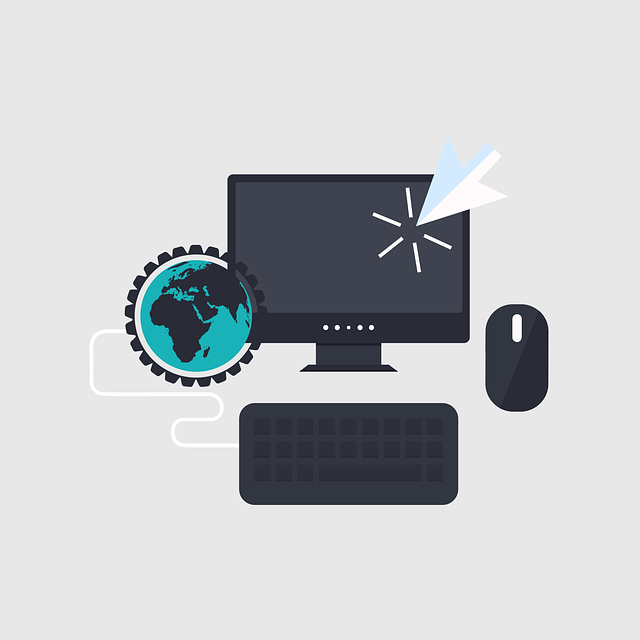Artificial Intelligence (AI) is transforming automotive service centers by optimizing operations through AI productivity coaching, improving efficiency, reducing costs, and enhancing customer satisfaction with predictive maintenance. Effective AI training tailored to specific shop challenges, combined with mentorship and ongoing support, is crucial for maximizing AI's potential. This approach leads to improved profitability and higher standards in the digital era, fostering market competition while delivering superior customer experiences.
In today’s digital era, Artificial Intelligence (AI) is transforming traditional automotive service centers. Understanding AI’s role and implementing effective training programs are key to enhancing auto shop profitability. This article explores strategic approaches to integrating AI, focusing on improved productivity and revenue growth. From data-driven insights to automated tasks, AI coaching empowers technicians, optimizes operations, and ultimately boosts the bottom line. Discover how these innovative practices can revolutionize your auto service center.
- Understanding AI's Role in Automotive Service Centers
- Strategies for Effective AI Training Programs
- Measuring and Enhancing Auto Shop Profitability with AI
Understanding AI's Role in Automotive Service Centers

Artificial Intelligence (AI) is transforming the automotive industry, and its impact on service centers is significant. By leveraging AI technologies, auto shops can optimize operations and enhance customer experiences. AI productivity coaching involves training algorithms to streamline tasks such as scheduling appointments, managing inventory, and diagnosing vehicle issues more efficiently. This not only improves accuracy but also releases human resources to focus on complex tasks that require critical thinking and expertise.
In terms of profitability, AI integration offers a competitive edge by enabling faster service times, reduced operational costs, and improved resource allocation. For instance, predictive maintenance models can anticipate vehicle failures, minimizing unexpected breakdowns and downtime. This proactive approach leads to higher customer satisfaction and fosters long-term relationships with clients who appreciate the convenience and reliability of AI-driven services.
Strategies for Effective AI Training Programs

Implementing AI in automotive service centers is a game-changer, but ensuring effective training is key to unlocking its full potential and enhancing shop profitability. A successful AI training program should focus on practical applications relevant to auto shop operations. Customizing the curriculum to address specific pain points and goals is essential; this could include streamlining scheduling, improving diagnostics, or optimizing parts management. By integrating real-world use cases, technicians can grasp how AI can revolutionize their daily tasks.
Mentorship and ongoing support are vital components of effective training. Pairing experienced technicians with AI coaches allows for knowledge sharing and ensures that best practices are adopted. Regular workshops and access to AI experts enable continuous learning as new developments emerge. Additionally, providing hands-on practice sessions with real data sets from the auto shop can significantly enhance understanding and adoption rates, fostering a culture of AI productivity coaching for optimal shop profitability.
Measuring and Enhancing Auto Shop Profitability with AI

In today’s digital era, automotive service centers are exploring innovative ways to boost their profitability, and Artificial Intelligence (AI) productivity coaching is emerging as a game-changer. AI algorithms can meticulously analyze vast amounts of data from auto shop operations, including customer records, maintenance logs, and cost structures. By harnessing this power, AI systems identify inefficiencies, predict maintenance needs, and optimize scheduling, leading to enhanced operational efficiency.
Through advanced predictive analytics, AI productivity coaches can suggest targeted training programs for staff, ensuring that technicians are equipped with the latest skills. This tailored approach not only improves job performance but also contributes to increased revenue by reducing downtime and enhancing overall auto shop profitability. By implementing AI-driven strategies, automotive service centers can elevate their standards, compete effectively in the market, and deliver exceptional customer experiences.
AI training is transforming automotive service centers, offering a powerful tool to boost efficiency and profitability. By implementing effective AI strategies, shops can optimize operations, reduce costs, and enhance customer satisfaction. Through targeted coaching and data-driven insights, AI empowers auto shop owners to make informed decisions, streamline processes, and stay competitive in an evolving market. Embracing AI productivity tools is no longer an option but a necessity for maximizing success and ensuring long-term growth in the automotive industry.
